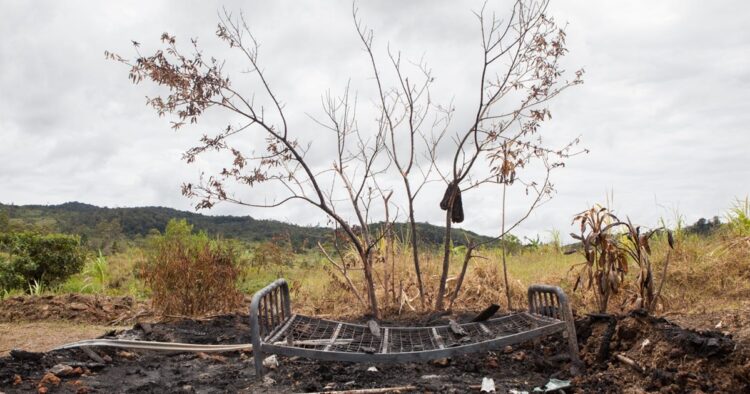In a tragic turn of events, a fresh outbreak of tribal violence has rocked the remote highlands of Papua New Guinea, resulting in the deaths of dozens of men. According to George Kakas, the provincial police commander of Enga, the violence erupted on Sunday with heavy gunfire claiming the lives of many. The conflict reportedly involved men from two tribes launching an attack on another group, resulting in a deadly ambush.
The situation remains tense in the region as some bodies still lie unrecovered in the bushes, awaiting retrieval by neighboring tribes. Despite the grim circumstances, Kakas reassured the public that the highways are clear for travel, albeit amidst an atmosphere of unease and insecurity.
Initial reports suggested that at least 53 individuals fell victim to the ambush. However, authorities later corrected the count, indicating that 26 men had been killed in the violence. Graphic images and videos circulating online depict the grim aftermath, with bodies piled up on a truck, underscoring the severity of the massacre.
This recent escalation in violence underscores a broader pattern of tribal conflicts that periodically plague Papua New Guinea. While tribal fighting is not uncommon in certain regions, the severity of the Enga province’s situation has drawn heightened attention in recent months.
The Enga province witnessed a similar wave of violence last year, prompting authorities to impose a lockdown in response to the unrest. Reports suggested that as many as 150 people lost their lives in the turmoil, although exact figures remain elusive due to discrepancies in estimates. Shocking footage circulated on social media, depicting men bound and dragged behind a truck as bystanders cheered, further amplifying concerns over the situation’s brutality.
Reacting to the distressing news, Australian Prime Minister Anthony Albanese expressed his concern during a radio interview, emphasizing Australia’s commitment to providing support to Papua New Guinea. He highlighted efforts aimed at training police officers and bolstering security in the region as part of broader initiatives to address the underlying issues contributing to the violence.
As Papua New Guinea grapples with the aftermath of this latest outbreak of tribal violence, there are growing calls for sustained efforts to address the root causes of conflict and promote lasting peace and stability in the region.

















Comments